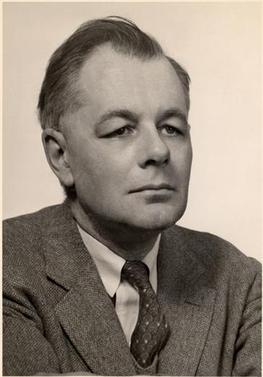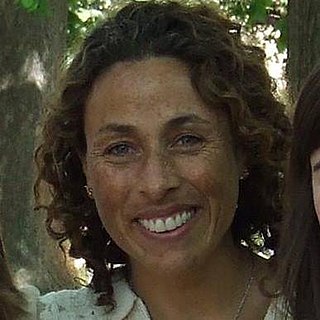Related Research Articles

The biological pump (or ocean carbon biological pump or marine biological carbon pump) is the ocean's biologically driven sequestration of carbon from the atmosphere and land runoff to the ocean interior and seafloor sediments. In other words, it is a biologically mediated process which results in the sequestering of carbon in the deep ocean away from the atmosphere and the land. The biological pump is the biological component of the "marine carbon pump" which contains both a physical and biological component. It is the part of the broader oceanic carbon cycle responsible for the cycling of organic matter formed mainly by phytoplankton during photosynthesis (soft-tissue pump), as well as the cycling of calcium carbonate (CaCO3) formed into shells by certain organisms such as plankton and mollusks (carbonate pump).

George Evelyn Hutchinson was a British ecologist sometimes described as the "father of modern ecology." He contributed for more than sixty years to the fields of limnology, systems ecology, radiation ecology, entomology, genetics, biogeochemistry, a mathematical theory of population growth, art history, philosophy, religion, and anthropology. He worked on the passage of phosphorus through lakes, the chemistry and biology of lakes, the theory of interspecific competition, and on insect taxonomy and genetics, zoo-geography and African water bugs. He is known as one of the first to combine ecology with mathematics. He became an international expert on lakes and wrote the four-volume Treatise on Limnology in 1957.
Craig Jon Hawker is an Australian-born chemist. His research has focused on the interface between organic and polymer chemistry, with emphasis on the design, synthesis, and application of well-defined macromolecular structures in biotechnology, microelectronics, and surface science. Hawker holds more than 45 U.S. patents, and he has co-authored over 300 papers in the areas of nanotechnology, materials science, and chemistry. He was listed as one of the top 100 most cited chemists worldwide over the decade 1992–2002, and again in 2000–2010.
Farooq Azam is a researcher in the field of marine microbiology. He is a Distinguished Professor at the Scripps Institution of Oceanography, at the University of California San Diego. Farooq Azam grew up in Lahore and received his early education in Lahore. He attended University of Punjab, where he received his B.Sc in Chemistry. He later he received his M.Sc from the same institution. He then went to Czechoslovakia for higher studies. He received his PhD in Microbiology from the Czechoslovak Academy of Sciences. After he received his PhD, Farooq Azam moved to California. Azam was the lead author on the paper which coined the term microbial loop. This 1983 paper involved a synthesis between a number of leaders in the (then) young field of microbial ecology, specifically, Azam, Tom Fenchel, J Field, J Gray, L Meyer-Reil and Tron Frede Thingstad.
The G. Evelyn Hutchinson Award is an award granted annually by the Association for the Sciences of Limnology and Oceanography to a mid-career scientist for work accomplished during the preceding 5–10 years for excellence in any aspect of limnology or oceanography. The award is named in honor of the ecologist and limnologist G. Evelyn Hutchinson. Hutchinson requested that recipients of the award have made considerable contributions to knowledge, and that their future work promise a continuing legacy of scientific excellence.
Paul G. Falkowski is an American biological oceanographer in the Institute of Marine and Coastal Sciences at Rutgers University in New Brunswick, New Jersey. His research work focuses on phytoplankton and primary production, and his wider interests include evolution, paleoecology, photosynthesis, biogeochemical cycles and astrobiology.

The Annual Review of Marine Science is an annual peer-reviewed scientific review journal published by Annual Reviews. It was established in 2009. It covers all aspects of marine science. The co-editors are Craig A. Carlson and Stephen J. Giovannoni. As of 2022, Journal Citation Reports gives the journal a 2020 impact factor of 16.561, ranking it first out of 113 in the category "Marine & Freshwater Biology", first out of 66 in the category "Oceanography", and second out of 87 journals in the category "Geochemistry & Geophysics".
Cindy Lee Van Dover is the Harvey Smith Professor of Biological Oceanography and chair of the Division of Marine Science and Conservation at Duke University. She is also the director of the Duke University Marine Laboratory. Her primary area of research is oceanography, but she also studies biodiversity, biogeochemistry, conservation biology, ecology, and marine science.

Dawn Jeannine Wright is an American geographer and oceanographer. She is a leading authority in the application of geographic information system (GIS) technology to the field of ocean and coastal science, and played a key role in creating the first GIS data model for the oceans. Wright is Chief Scientist of the Environmental Systems Research Institute. She has also been a professor of geography and oceanography at Oregon State University since 1995 and is a former Oregon Professor of the Year as named by the Council for the Advancement and Support of Education and the Carnegie Foundation for the Advancement of Teaching. Wright was the first African-American female to dive to the ocean floor in the deep submersible ALVIN. On July 12, 2022 she became the first Black person to dive to Challenger Deep, the deepest point on Earth, and to successfully operate a sidescan sonar at full-ocean depth.
Alice Alldredge is an American oceanographer and marine biologist who studies marine snow, carbon cycling, microbes and plankton in the ecology of the ocean. She has conducted research in the open sea, at her laboratory at the University of California, Santa Barbara as well as in collaboration with the Long Term Ecological Research Network (LTER) at the Mo'orea Coral Reef Long Term Ecological Research Site in Mo'orea, French Polynesia. According to the annual ISI Web of Knowledge list published by Thomson Reuters, she has been one of the most cited scientific researchers since 2003.

Kenneth Craig Macdonald is an American oceanographer and marine geophysicist born in San Francisco, California in 1947. As of 2018 he is professor emeritus at the Department of Earth Science and the Marine Sciences Institute at the University of California, Santa Barbara (UCSB). His work focuses on the tectonics and geophysics of the global mid-oceanic ridge including its spreading centers and transform faults, two of the three types of plate boundaries central to the theory of plate tectonics. His work has taken him to the north and south Atlantic oceans, the north and south Pacific oceans, the Indian Ocean, the Red Sea and the Sea of Cortez, as well as to the deep seafloor on over 50 dives in the research submersible ALVIN. Macdonald has participated in over 40 deep sea expeditions, and was chief- or co-chief scientist on 31 expeditions.
Diane E. Pataki is a Foundation Professor and Director of the School of Sustainability at Arizona State University. She is an elected Fellow of the American Geophysical Union, the Ecological Society of America, and the American Association for the Advancement of Science. She was a recipient of the James B. Macelwane Medal in 2008 from the American Geophysical Union for her research on coupled water and carbon cycles. The award is given to “significant contributions to the geophysical sciences by an outstanding early career scientist.”

Claudia Benitez-Nelson is a Latinx American oceanographer whose research focuses on marine geochemistry and biogeochemistry. A Carolina Distinguished Professor, she serves as the Senior Associate Dean for College Initiatives and Interdisciplinary Programs at the University of South Carolina’s College of Arts and Sciences.

Carlos Manuel Duarte is a marine ecologist conducting research on marine ecosystems globally, from polar to the tropical ocean and from near-shore to deep-sea ecosystems. His research addresses biodiversity in the oceans, the impacts of human activity on marine ecosystems, and the capacity of marine ecosystems to recover from these impacts. He is also interested in transdisciplinary research, collaborating with scientists and engineers across a broad range of fields to solve problems in the marine ecosystem and society. He is currently a Distinguished Professor at the King Abdullah University of Science and Technology and executive director of the Coral Research and Development Accelerator Platform.
Bess Ward is an American oceanographer, biogeochemist, microbiologist, and William J. Sinclair Professor of Geosciences at Princeton University.
Elena Litchman is a professor of aquatic ecology at Michigan State University known for her research on the consequences of global environmental change on phytoplankton.
Scott Doney is a marine scientist at the University of Virginia known for his work on biogeochemical modeling. Doney is the Joe D. and Helen J. Kington Professor in Environmental Change, a fellow of the American Geophysical Union, the American Association for the Advancement of Science., and the Association for the Sciences of Limnology and Oceanography. He is currently serving as the Assistant Director for Ocean Climate Science and Policy in the White House Office of Science and Technology Policy.
Jean Lynch-Stieglitz is a paleoceanographer known for her research on reconstructing changes in ocean circulation over the last 100,000 years.
Andréa Geneviève Grottoli is a Canadian biologist who is Professor of Earth Sciences at the Ohio State University. She is a Fellow of the American Association for the Advancement of Science, and was named the 2021 American Geophysical Union Rachel Carson Lecturer. She is the President of the International Coral Reef Society.
Dennis P. Lettenmaier is an American hydrologist.
References
- 1 2 3 Bronk, Deborah A.; Carlson, Craig (2003). "Carlson receives Ocean Sciences Early Career Award". Eos, Transactions American Geophysical Union. 84 (11): 101. Bibcode:2003EOSTr..84..101B. doi: 10.1029/2003EO110009 . ISSN 0096-3941.
- ↑ "Paula (Barbuto) & David Carlson". Horace Greeley HS Class of 1957. 2007. Retrieved 1 February 2021.
- 1 2 "Carlson '86 Wins ASLO Hutchinson Award". News. 23 January 2015. Retrieved 29 January 2021.
- 1 2 "Craig Carlson | Ecology, Evolution and Marine Biology | UC Santa Barbara". www.eemb.ucsb.edu. Retrieved 2021-01-29.
- ↑ "Preface". Annual Review of Marine Science. 1. 2009. doi:10.1146/annurev.ma.1.121108.100001.
- ↑ "Annual Review of Marine Science, Current Editorial Committee". Annual Reviews. Retrieved 28 January 2021.
- ↑ Noozhawk (21 January 2015). "UCSB Professor Craig Carlson Named 2015 Recipient of Hutchinson Award". www.noozhawk.com. Retrieved 2021-01-29.
- ↑ "AAAS Honors Accomplished Scientists as 2018 Elected Fellows | American Association for the Advancement of Science". www.aaas.org. Retrieved 2021-12-04.
- ↑ "Alumni at large". Colby Magazine. Vol. 98, no. 4. 2010. p. 44.